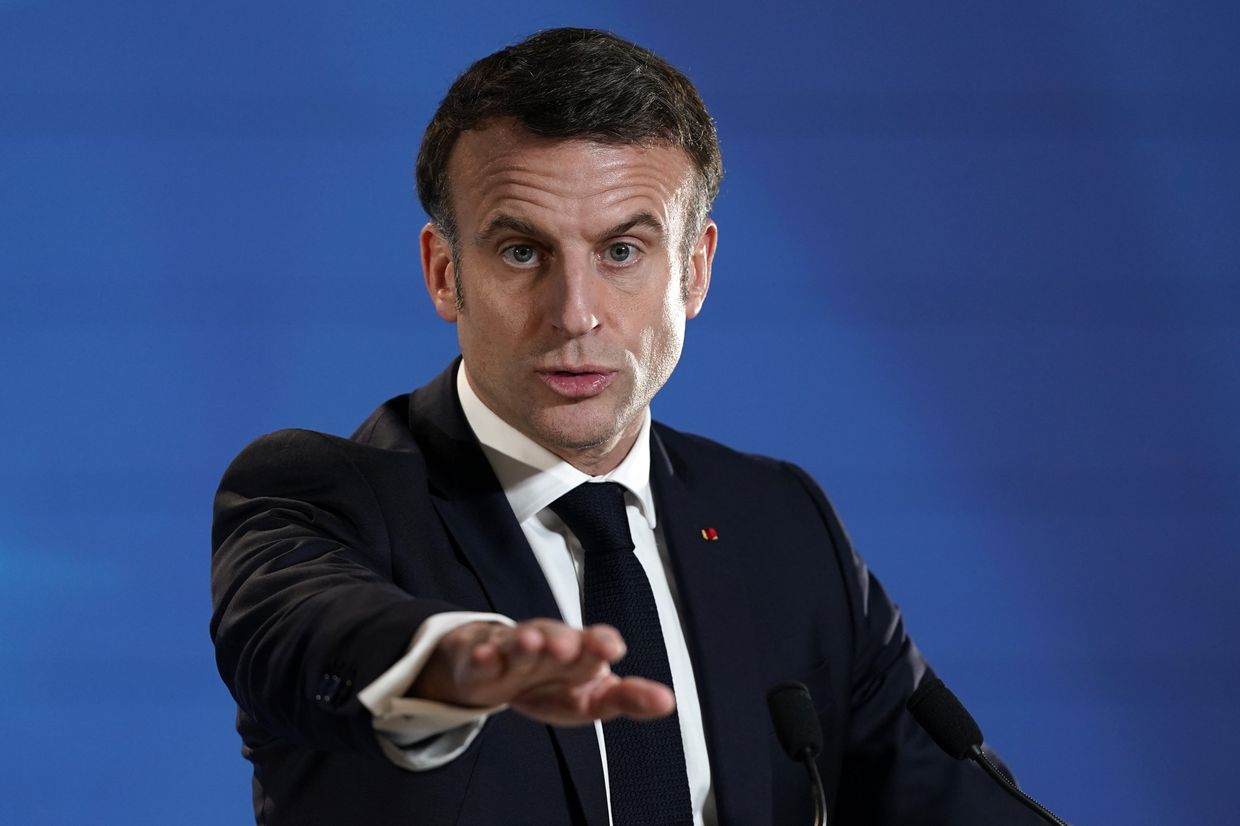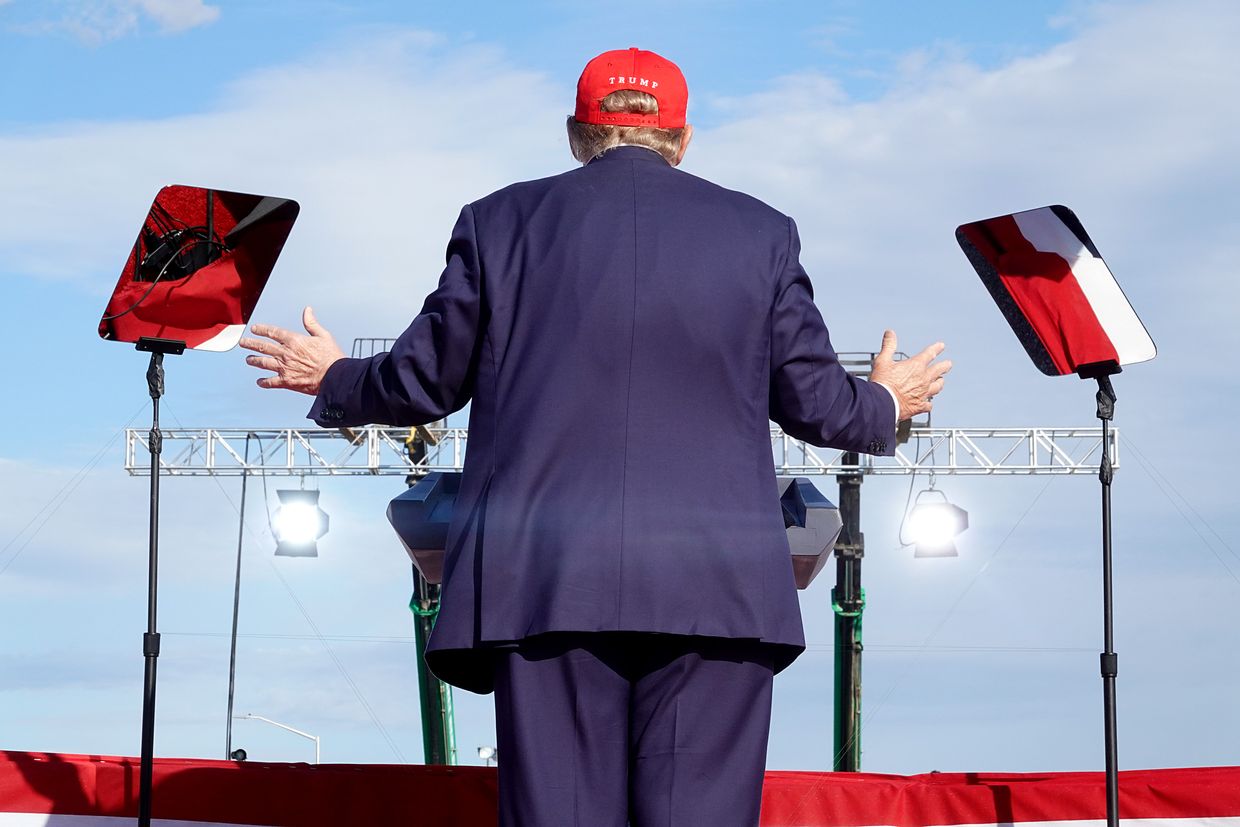Ukraine urges allies to lift Western arms ban on hitting targets inside Russia. Will they?

M142 HIMARS launches a rocket on Russian position in an unspecified location on Dec. 29, 2023. (Serhii Mykhalchuk/Global Images Ukraine via Getty Images)
Following a new Russian offensive in Kharkiv Oblast, Ukraine is increasingly raising pressure on its allies, urging them to lift restrictions on the use of Western-provided weapons against military targets inside Russia.
Months before the offensive, Kyiv had publicly pledged not to use Western-made weapons to strike targets outside of the country's borders, with the West providing such weapons with the following restriction.
Ukraine has reportedly used both U.K.-supplied Storm Shadow missiles and U.S.-provided long-range ATACMS missiles to attack Russian military targets in occupied areas, including Crimea. Yet, targets inside Russia have remained largely untouched, with Ukraine using a limited number of homemade weapons to strike targets across the border.
Ukrainian officials have now signaled that the new offensive could have been thwarted if Ukraine had the right to strike Russian military targets before they crossed the border.
"We see every point of concentration of Russian troops. We know all the areas where Russian missiles and combat aircraft are launched," President Volodymyr Zelensky said on May 26.
"Destroying this terrorist force, and thus saving thousands of lives and guaranteeing that the expansion of the war will be stopped, is purely a political decision. A decision that needs to be made."
The West has so far hesitated with the decision, fearing that such attacks could potentially lead to an increased confrontation, a notion that Ukraine rejects.
"There is no risk of escalation. Escalation has already taken place," Zelensky said.
To thwart Russian attacks
Due to its proximity to the border, the city of Kharkiv and other settlements in the region have suffered from regular attacks since the beginning of the full-scale war.
Following a renewed Russian offensive, at least eight villages were occupied, while the regional capital, home to 1.4 million people, faces daily deadly strikes.
Over the past week, Russia targeted residential areas, a hypermarket, a printing house, and other civilian sites, leaving over 40 civilians killed and many more injured.


Moscow is also forming another grouping of forces near Ukraine's northern border, according to Zelensky. The Ukrainian military did not rule out a similar Russian offensive in Sumy Oblast in the coming days.
Oleksandr Lytvynenko, secretary of the National Security and Defense Council, told the Financial Times that strikes with long-range Western weaponry against Russian arms depots, logistics centers, and oil refineries could prevent renewed attacks.
The ban on such strikes prevents the Ukrainian military from attacking Russian troops amassing near the border.
"How do we respond when they strike our cities? They proceed calmly, understanding that our partners do not give us permission (to use their weapons to retaliate)," Zelensky said in an interview with the New York Times published on May 22.

According to a source in the president's office, who spoke on conditions of anonymity in mid-May, the ban on such strikes is universal, with no Western country that manufactures weapons provided to Ukraine allowing them to be used to strike military targets inside Russia.
Ukraine has relied on domestically produced weapons reportedly capable of striking deep into Russia. However, the uptick in strikes on Russian oil refineries has prompted criticism from U.S. officials.
Partners' response
Some countries of the European Union have been lifting the restrictions "to respond to the Russian attacks from Russian territory," Josep Borrell, the EU's chief diplomat, said in Brussels on May 27, without naming any specific states.
U.K. Foreign Secretary David Cameron said during his visit to Kyiv in early May that Ukraine had the right to use the weapons provided by London to strike targets inside Russia and that it was up to Kyiv whether to do so.
The Kyiv Independent's source in the president's office denied the statement, saying that there was no green light from the U.K. at that time.
Following the growing pressure, NATO Secretary General Jens Stoltenberg called on allies to end their ban on the use of arms donated to Ukraine.
"Especially now when a lot of the fighting is going on in Kharkiv, close to the border, to deny Ukraine the possibility of using these weapons against legitimate military targets on Russian territory makes it very hard for them to defend themselves," he said in an interview with the Economist published on May 24.

The NATO Parliamentary Assembly adopted a declaration in support of NATO allies lifting these restrictions for Ukraine. However, each member state decides on its own whether to allow strikes on targets inside Russia with weapons it had manufactured.
Swedish, Czech, and Latvian leaders supported Ukraine's right to defense beyond its borders.
Moscow's recent gains on the battlefield are "the consequence of our inability to provide Ukraine with weapons and then also putting restrictions to use those weapons to strike military targets in Russia," Latvian President Edgars Rinkevics said.
While Italy and Belgium opposed the use of Western weapons for strikes inside Russia, Brussels, one of the donors of long-awaited F-16 fighter jets to Kyiv, insists that after the delivery, the aircraft should be used only within Ukraine's territory.
"We must be prudent," Italian Prime Minister Giorgia Meloni said following Stoltenberg's appeal.
All eyes are, however, on Washington and Berlin, the top two providers of military aid to Ukraine, both of whom are against allowing Kyiv to strike Russian territory.
The U.S. officials have repeatedly said that they do not support or encourage Kyiv's strikes with American weapons on Russian soil, while German Chancellor Olaf Scholz outright said that the policy won't change.
Scholz said that Germany gave clear rules to Ukraine prohibiting the use of German weapons on Russian soil and that he sees no reason to change this.
Yet, growing pressure from Ukraine and officials inside both states might push the needle in the coming weeks.
U.S. House Speaker Mike Johnson appeared to endorse enabling Ukraine to strike targets in Russian territory with U.S.-supplied weapons on May 22.
"(Ukraine needs) to be able to fight back. And I think us trying to micromanage the effort there is not a good policy for us," he added.
The situation in the embattled region has also reportedly made U.S. Secretary of State Antony Blinken change his stance on the issue.
"We've not enabled or encouraged strikes outside of Ukraine, but ultimately, Ukraine has to make decisions for itself about how it's going to conduct this war," Blinken said during his visit to Ukraine just days after Moscow launched its offensive in Kharkiv Oblast on May 10.
However, despite all comments in support of Ukraine, permission has yet to be granted.

















